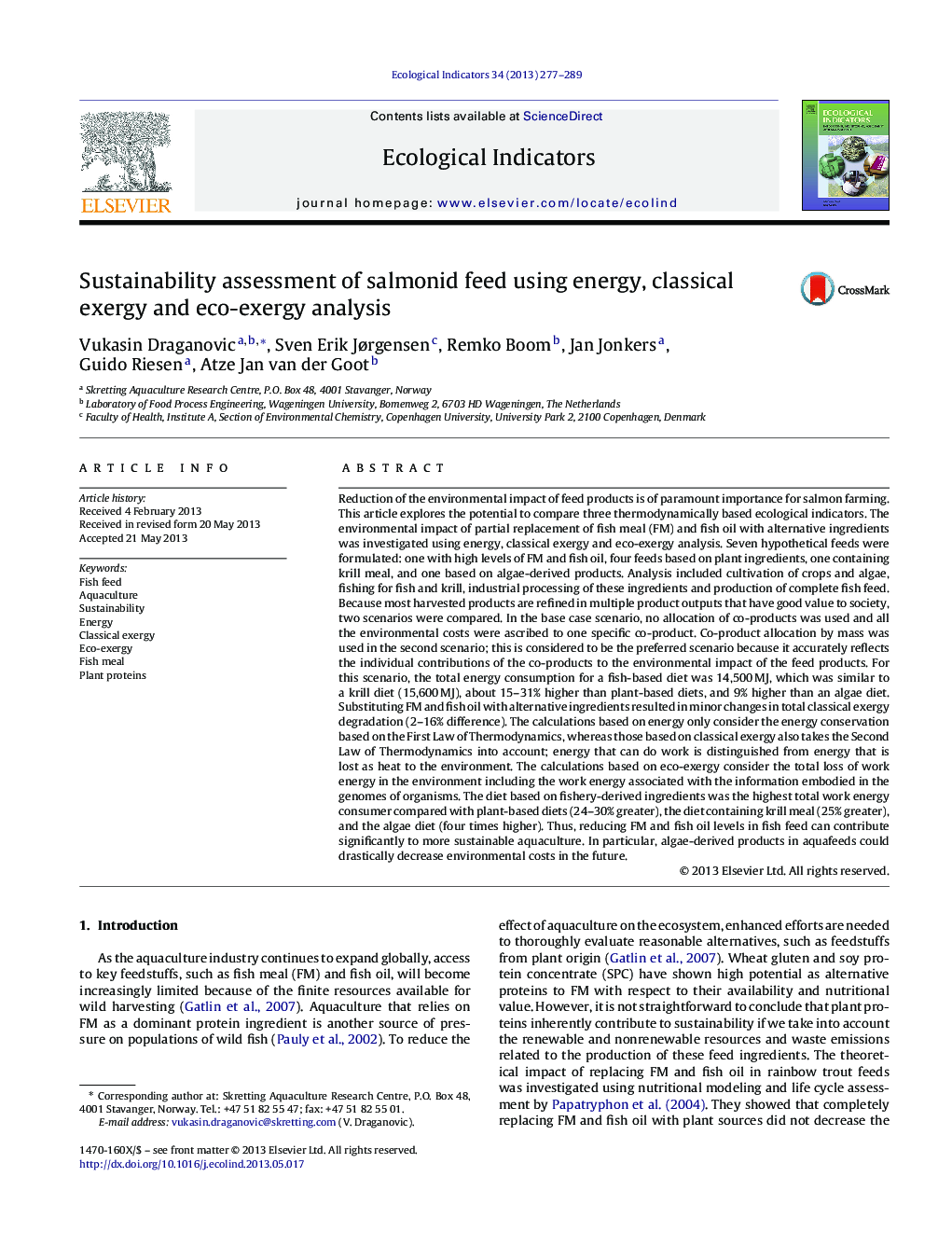| کد مقاله | کد نشریه | سال انتشار | مقاله انگلیسی | نسخه تمام متن |
|---|---|---|---|---|
| 6295271 | 1617166 | 2013 | 13 صفحه PDF | دانلود رایگان |
Reduction of the environmental impact of feed products is of paramount importance for salmon farming. This article explores the potential to compare three thermodynamically based ecological indicators. The environmental impact of partial replacement of fish meal (FM) and fish oil with alternative ingredients was investigated using energy, classical exergy and eco-exergy analysis. Seven hypothetical feeds were formulated: one with high levels of FM and fish oil, four feeds based on plant ingredients, one containing krill meal, and one based on algae-derived products. Analysis included cultivation of crops and algae, fishing for fish and krill, industrial processing of these ingredients and production of complete fish feed. Because most harvested products are refined in multiple product outputs that have good value to society, two scenarios were compared. In the base case scenario, no allocation of co-products was used and all the environmental costs were ascribed to one specific co-product. Co-product allocation by mass was used in the second scenario; this is considered to be the preferred scenario because it accurately reflects the individual contributions of the co-products to the environmental impact of the feed products. For this scenario, the total energy consumption for a fish-based diet was 14,500Â MJ, which was similar to a krill diet (15,600Â MJ), about 15-31% higher than plant-based diets, and 9% higher than an algae diet. Substituting FM and fish oil with alternative ingredients resulted in minor changes in total classical exergy degradation (2-16% difference). The calculations based on energy only consider the energy conservation based on the First Law of Thermodynamics, whereas those based on classical exergy also takes the Second Law of Thermodynamics into account; energy that can do work is distinguished from energy that is lost as heat to the environment. The calculations based on eco-exergy consider the total loss of work energy in the environment including the work energy associated with the information embodied in the genomes of organisms. The diet based on fishery-derived ingredients was the highest total work energy consumer compared with plant-based diets (24-30% greater), the diet containing krill meal (25% greater), and the algae diet (four times higher). Thus, reducing FM and fish oil levels in fish feed can contribute significantly to more sustainable aquaculture. In particular, algae-derived products in aquafeeds could drastically decrease environmental costs in the future.
Journal: Ecological Indicators - Volume 34, November 2013, Pages 277-289
